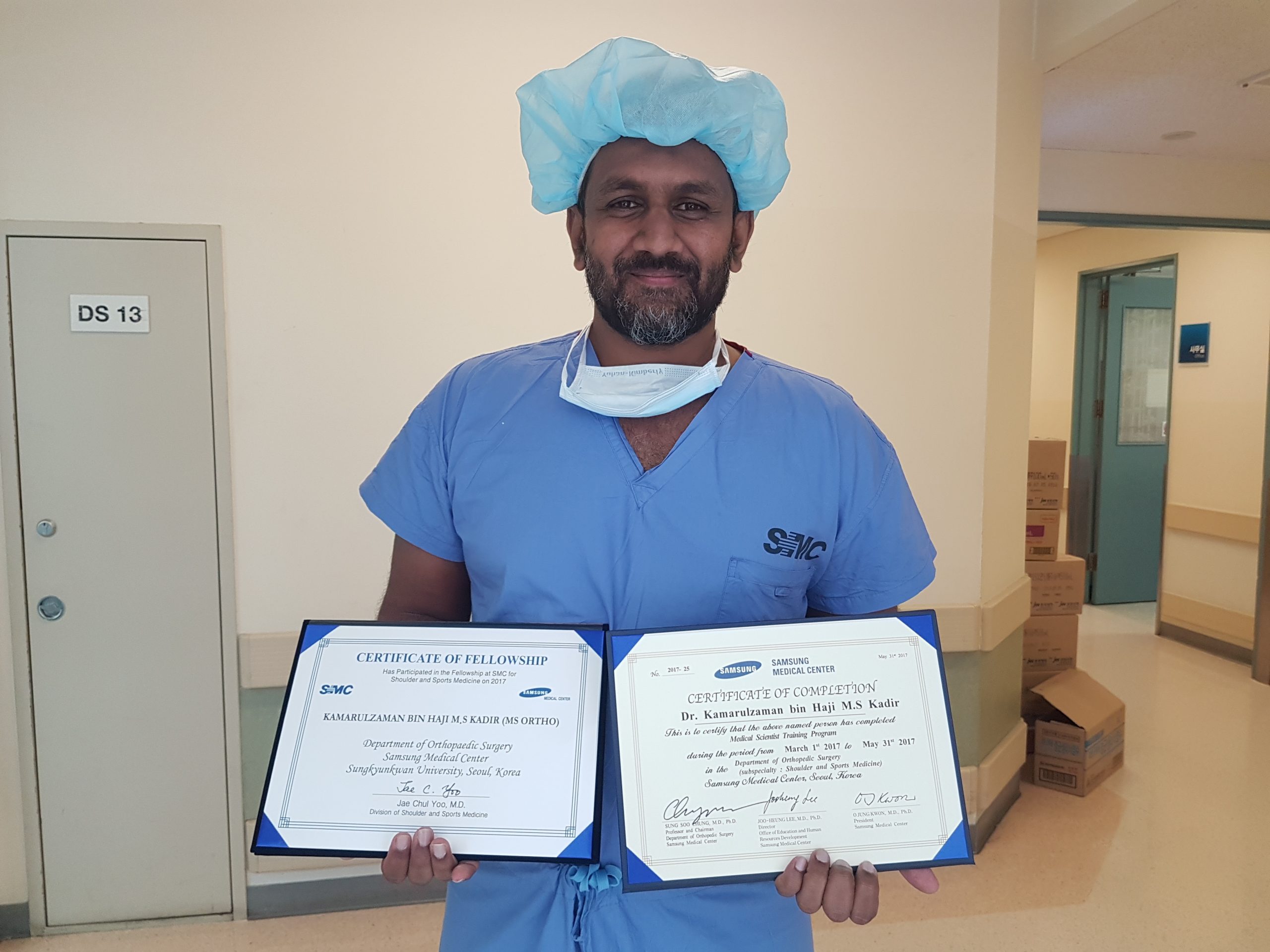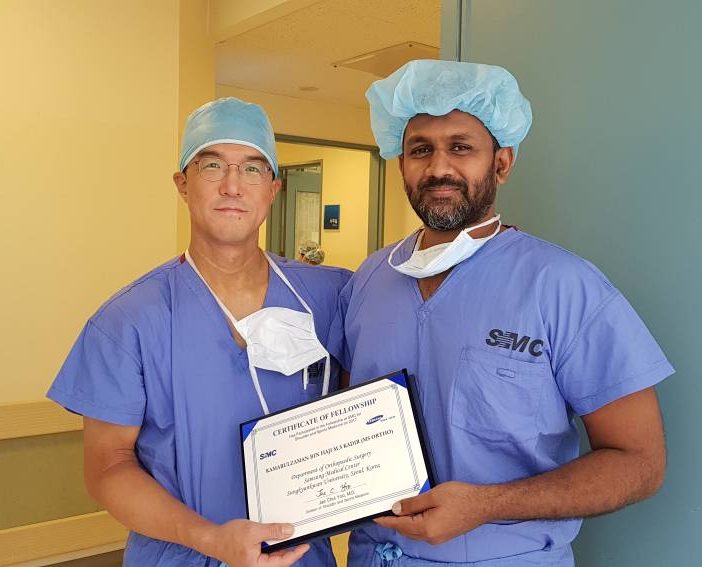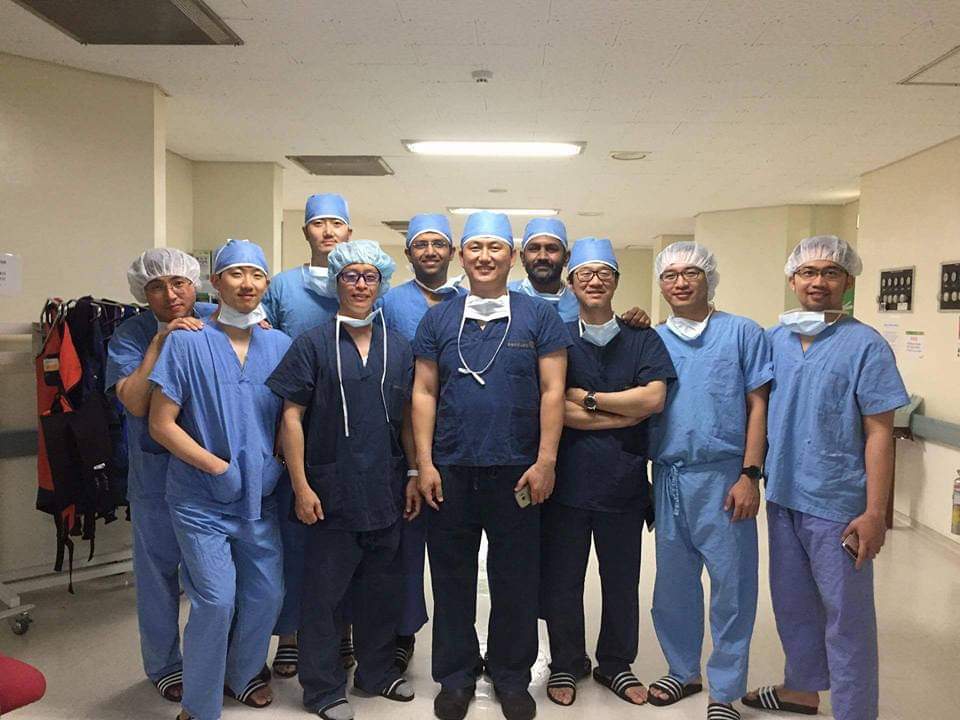Comprehensive Overview of Orthopaedic Surgery in Malaysia
Share This Story, Choose Your Platform!
Orthopaedic surgery is a specialized field within medicine that focuses on diagnosing and treating injuries and diseases of the musculoskeletal system.

This intricate system comprises bones, joints, ligaments, tendons, muscles, and nerves, enabling individuals to move, work, and be active.
In Malaysia, orthopaedic surgeons play a crucial role in addressing a wide range of musculoskeletal conditions, ensuring the mobility and well-being of patients across all age groups.
Moreover, orthopaedic surgeons, particularly those at KMZ Orthoman Clinic led by Dr. Kamarulzaman Hj. M.S Kadir, are highly skilled medical professionals dedicated to the comprehensive care of patients with musculoskeletal disorders.
With expertise in diagnosing and treating various orthopaedic conditions, these surgeons provide essential medical services to the Malaysian and International population.
From infants with congenital deformities to elderly individuals with degenerative joint diseases, KMZ Orthoman caters to the diverse orthopaedic needs of patients throughout their lifespan.
Scope of Practice
Orthopaedic surgeons in Malaysia excel in addressing a diverse range of musculoskeletal conditions, offering comprehensive care and innovative solutions:
Fractures and Trauma: They expertly manage fractures and traumatic injuries with advanced techniques, aiming to restore bone alignment and promote optimal healing. Utilizing state-of-the-art imaging modalities like MRI and CT scans, they ensure accurate diagnosis and precise treatment.
Arthritis Management: Orthopaedic surgeons provide effective management for arthritis, employing a multidisciplinary approach. Through medication, physical therapy, and lifestyle modifications, they alleviate pain and enhance joint function. In cases of advanced arthritis, they perform joint replacement surgeries, restoring mobility and improving quality of life.
Sports Medicine: Specialists in sports medicine cater to athletes’ unique needs, addressing injuries such as ligament tears and muscle strains. Collaborating closely with sports physiotherapists, they develop personalized treatment plans to optimize recovery and prevent future injuries, utilizing advanced techniques like arthroscopic surgery.
Pediatric Orthopaedics: They deliver specialized care to children with congenital anomalies and musculoskeletal injuries, collaborating with pediatricians and other specialists. From correcting limb deformities to treating fractures, they prioritize the well-being of their young patients, ensuring optimal growth and development.
Joint Replacement Surgery: Orthopaedic surgeons perform joint replacement surgeries with precision and care, aiming to alleviate pain and improve mobility in patients with advanced joint degeneration. Through meticulous preoperative planning and customized implants, they ensure optimal outcomes and patient satisfaction, guiding patients through rehabilitation for a speedy recovery.
Diabetic Foot Care: Diabetic patients need to have their sugar control and most importantly have good foot care since it’s easily injured. If the foot is injured, the healing may take longer than usual. A patient needs to care for the foot in the following manners:
- Be careful while cutting nails.
- Avoid activities that can injure the foot such as walking barefoot and on a hot surface.
- Remove obstacles to prevent injuries.
- Wash, clean, and moisturize the foot every day.
Education and Training
Orthopaedic surgeons in Malaysia undergo rigorous education and training to excel in their field.
They complete five years of undergraduate education in a medical school accredited by the Malaysian Medical Council (MMC) and then embark on four years of residency training in orthopaedic surgery at recognized teaching hospitals or medical centers.
Throughout their training, they gain valuable hands-on experience managing a wide range of orthopaedic conditions under the guidance of experienced mentors.
Many orthopaedic surgeons further enhance their expertise by pursuing fellowship training in subspecialty areas such as sports medicine, spine surgery, or joint reconstruction.
Meanwhile, certification from esteemed professional organizations like the Malaysian Orthopaedic Association (MOA) and the Malaysian Medical Council (MMC) attests to their proficiency in orthopaedic surgery and commitment to patient care.

Additionally, orthopaedic surgeons may seek fellowship status with international orthopaedic societies, such as the American Academy of Orthopaedic Surgeons (AAOS) or the European Federation of National Associations of Orthopaedics and Traumatology (EFORT), to broaden their professional networks and stay updated on global advancements.
Furthermore, prioritizing patient-centered care and accessibility, orthopaedic surgeons establish strong doctor-patient relationships based on trust, empathy, and effective communication.
Patients are actively involved in their treatment decisions from the initial consultation to postoperative follow-up visits. Embracing technology-enabled solutions like telemedicine and virtual consultations enhances patient access and convenience, particularly for those in remote or underserved areas.
Technology and Innovation
Advancements in orthopaedic technology and surgical techniques are seamlessly integrated into clinical practice by orthopaedic surgeons.
From minimally invasive surgeries and computer-assisted navigation to 3D printing of implants and patient-specific instrumentation, these innovations enhance surgical precision, reduce intraoperative trauma, and optimize postoperative outcomes.
Therefore, Orthopaedic surgeons collaborates with leading medical device companies and research institutions to evaluate emerging technologies and incorporate evidence-based practices into their treatment protocols.
By staying at the forefront of technological innovation, orthopaedic surgeons continually strive to deliver the highest quality of care and improve patient outcomes.
Despite significant advancements in orthopaedic care, challenges such as healthcare infrastructure limitations, resource constraints, and disparities in access to care do persist in Malaysia.
To address these challenges and shape the future of orthopaedic surgery, orthopaedic surgeons remain committed to continuous quality improvement initiatives, interdisciplinary collaboration, and community engagement efforts.
However, by fostering a culture of innovation, education, and research, they aim to expand their scope of services, enhance patient outcomes, and elevate the standard of orthopaedic care delivery nationwide.
Conclusion
Orthopaedic surgeons play a pivotal role in addressing musculoskeletal disorders and promoting mobility, functionality, and quality of life for patients in Malaysia.
Through their expertise, dedication, and commitment to excellence, orthopaedic surgeons contribute significantly to the healthcare landscape and the well-being of individuals across the nation.
Moreover, as Malaysia continues to evolve as a hub of orthopaedic excellence, it remains at the forefront of innovation, compassion, and patient-centric care, exemplifying the highest standards of orthopaedic surgery in the region.


